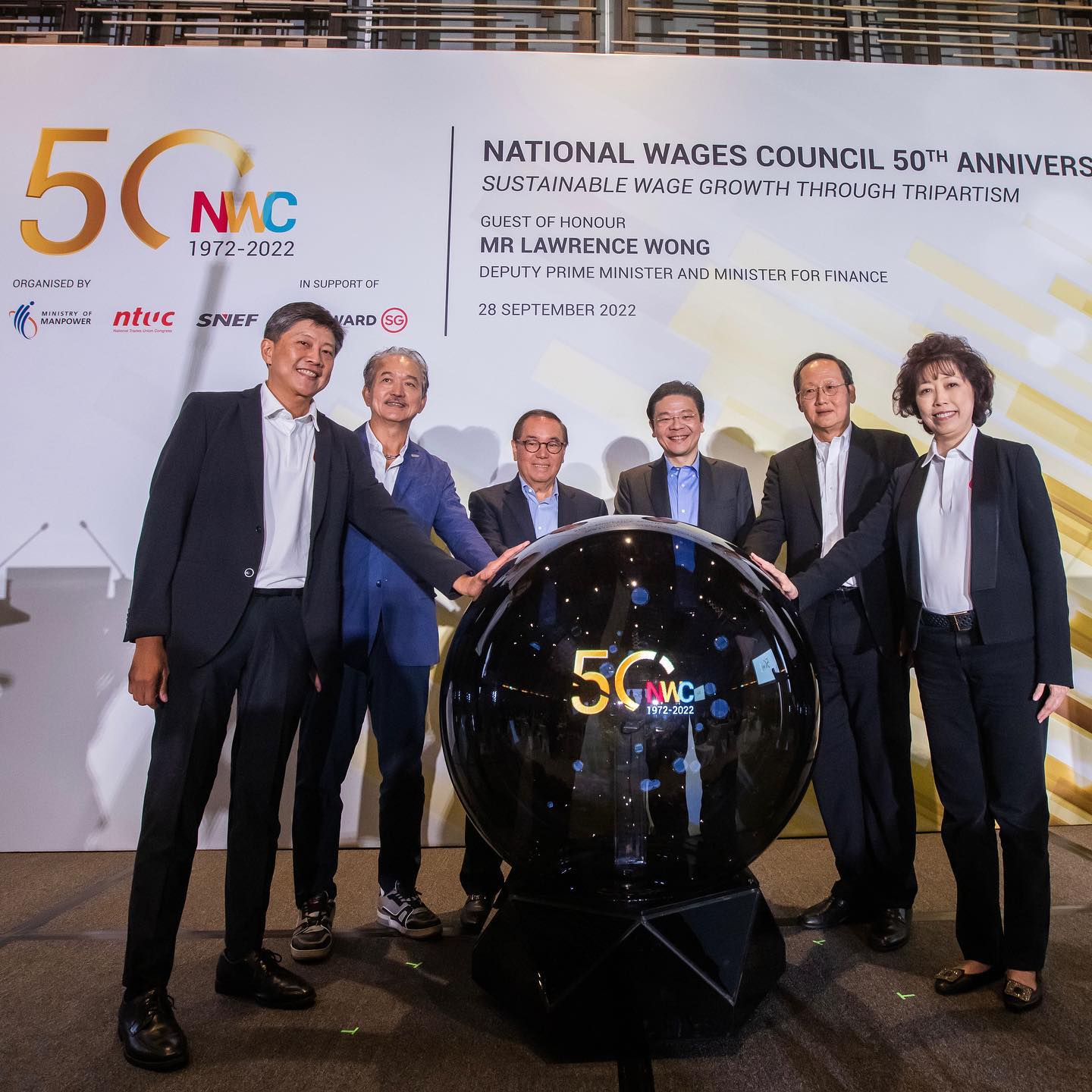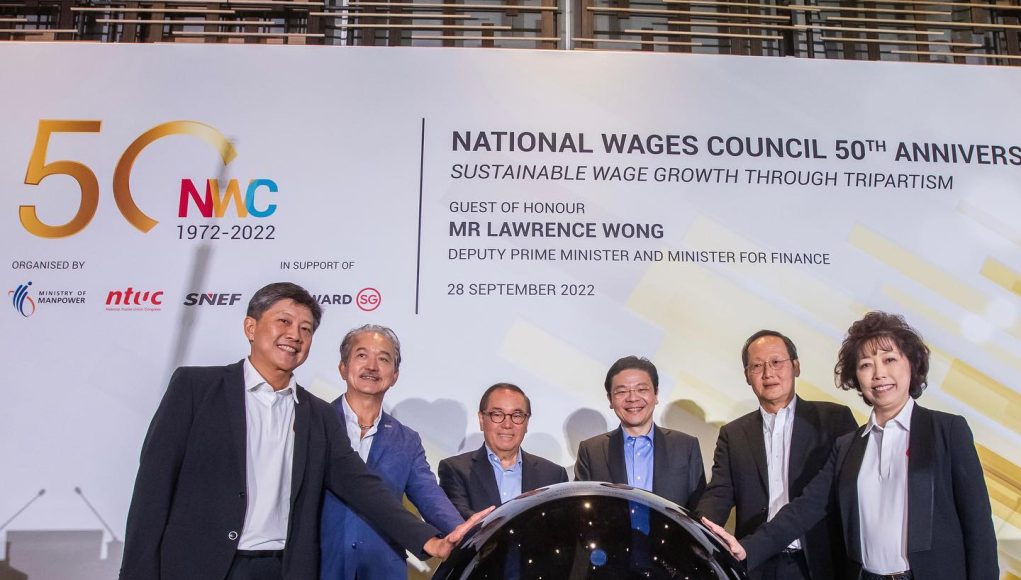
(Singapore, 29/09/2022) To ensure Singapore can continue to move forward, it must ensure that wages and wage increases are in line with productivity, and manage the risk of a “destabilising wage-price spiral”, where higher wages will cause higher prices, Deputy Prime Minister Lawrence Wong said on Wednesday (Sept 28).
At the same time, keeping a lid on sharp wage increases means that salaries may not keep up with the higher costs of living in the short term, added Mr Wong, however he assured that the Government will help people cushion the impact of inflation, especially for the lower and lower-middle-income workers.
“We are monitoring the situation closely and we will provide more help if necessary.”
Mr Wong, who is also Finance Minister, said this in a speech to employers and unionists at the National Wages Council’s (NWC) 50th anniversary dinner at Parkroyal Collection Pickering Hotel.
Pointing out that Singapore faces rising inflationary pressures and a potential global economic slowdown ahead, he spoke about how the country can respond to these challenges.
Mr Wong noted that Singapore is experiencing a very tight labour market – there are more than two and a half job vacancies for every unemployed person.
But he cautioned that increasing wages too quickly can cause Singapore to lose its global competitiveness, which will hurt both employers and employees. “It will be the most vulnerable workers who will ultimately bear the brunt of the impact if companies cannot sustain themselves.” he said.
Mr Wong also called for a redoubling of efforts to encourage skills upgrading and productivity improvements, saying this is “the only way” to secure sustainable wage increases and improve the well-being of Singaporeans”.
“The Government will do our part by helping companies on this journey through a wide range of grants for automation, productivity improvements, job redesign and skills upgrading, a whole range of schemes that we have,” he said.
Besides, Mr Wong stressed that efforts to lift lower-wage workers and reduce income inequality must continue.
“We must ensure that wage gaps across our society do not move too far apart, that is why we focus our efforts on uplifting the wages of those at the bottom 20th percentile.” he said.
This is done by increasing the Workfare Income Supplement, expanding progressive wages to more sectors and raising the local qualifying salary, which companies must apply to all their resident workers when they hire foreigners.
Mr Wong stressed that Singapore must “never allow” wages to stagnate and income gaps to widen.
“If this were to happen, people will lose hope and grow resentful with a system that they feel does not serve them, or only benefits few. And then trust will very quickly break down and social cohesion will rupture,” he added.
To this end, workers must be “open to adopt new ways of doing things” and training themselves, he said.
Employers, especially in sectors where there is limited scope for productivity improvement for lower-wage workers, must “reward their workers adequately”.
“And as consumers and taxpayers, we must be prepared to share the costs too by paying a little more, to help those less advantaged earn more and be valued for their work,” Mr Wong said.





































